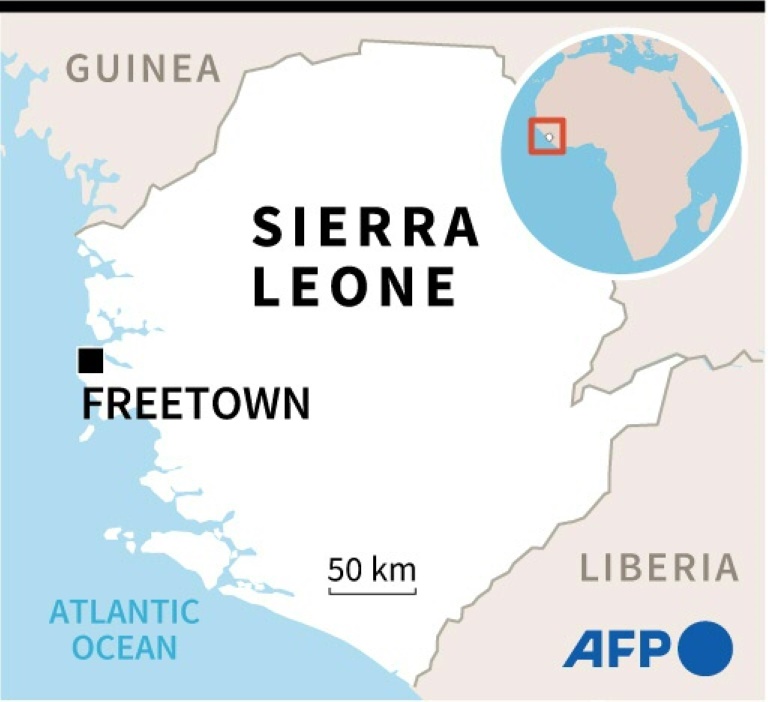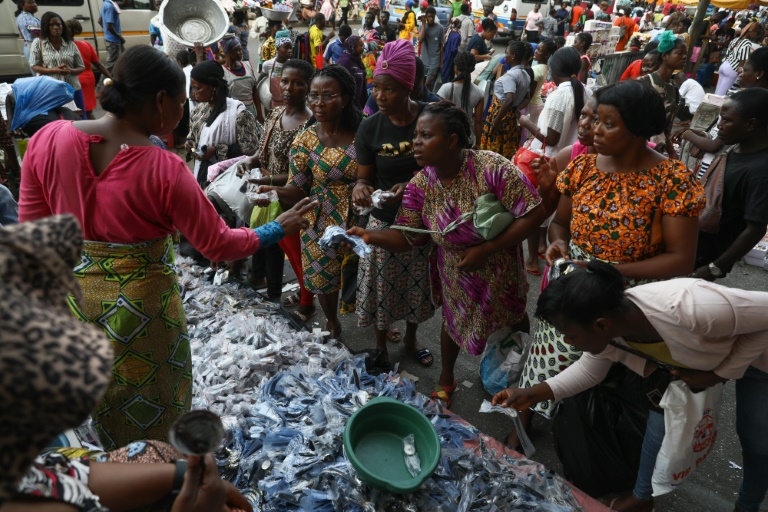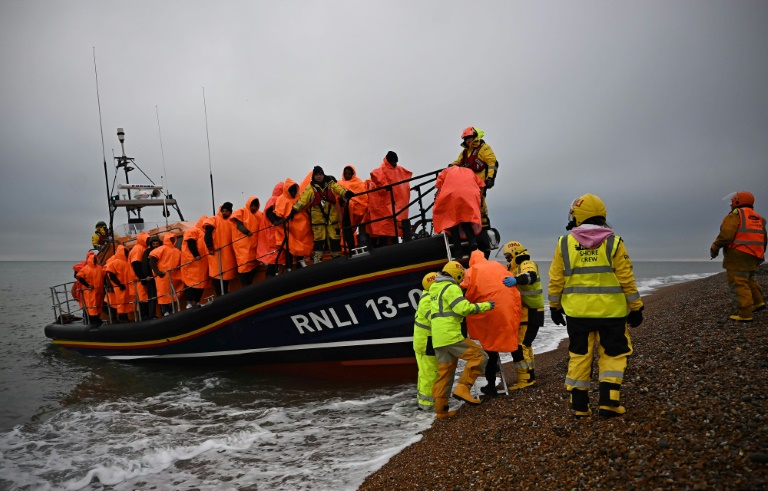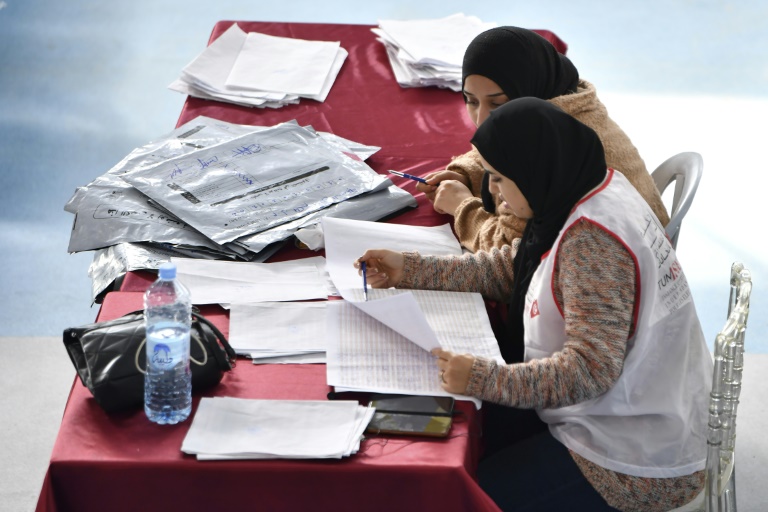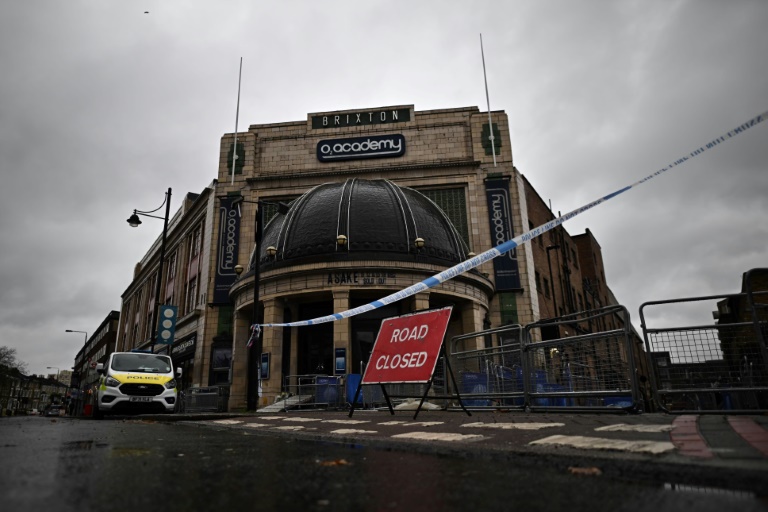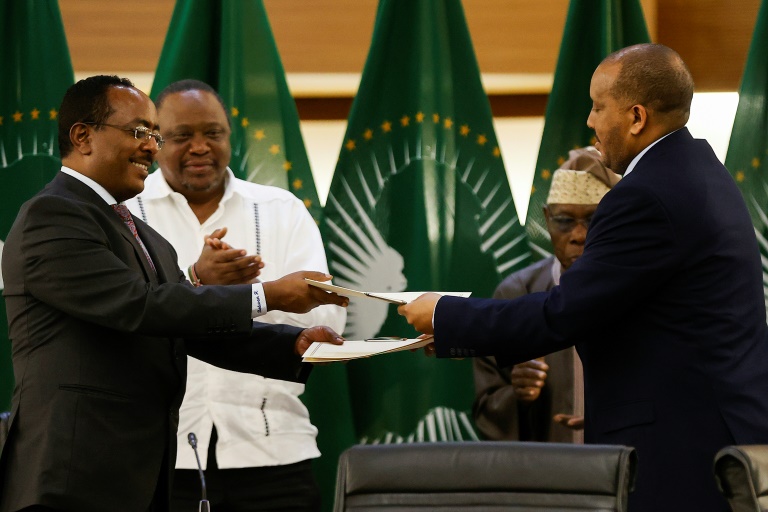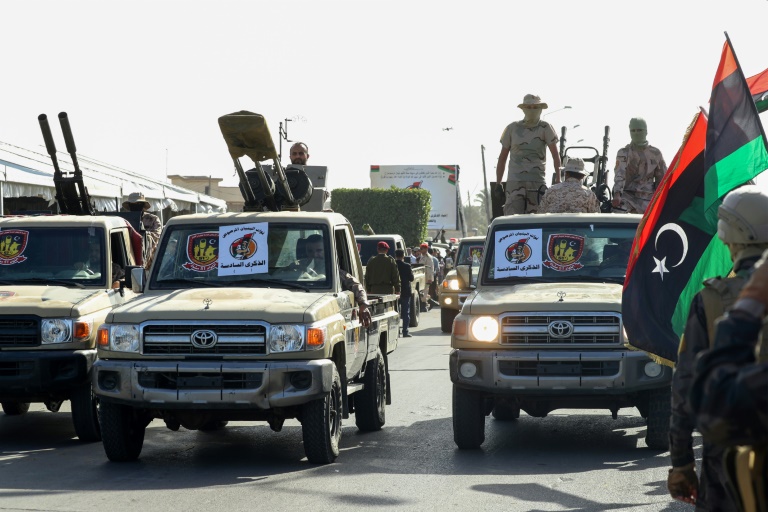Sierra Leone's rainy season typically lasts from May to October.
Eight people have been killed and more than 800 displaced by torrential rain and a landslide in Sierra Leone’s capital Freetown, authorities said Monday, warning of further damage as rains continue.
The downpours hit the city over the weekend, causing a landslide Sunday in Looking Town area.
Four men, one woman and a seven-year-old girl died in the landslide, according to the National Disaster Management Agency (NDMA).
Two men were also killed in the Mount Aureol and Blackhall Road neighbourhoods when fences collapsed onto buildings, the agency said.
In the Colbert community, more than 800 people were displaced by flash flooding, Mohammed Bah, a NDMA spokesman, told AFP.
“The landslide was due to the heavy rain, no doubt, but also a combination of illegal human activities”, Bah said.
“People are cutting down trees, tampering with the forest cover… The mudslide that occurred is mainly a result of the fact that people are building (houses) beyond demarcated zones.”
Authorities have asked residents to evacuate the disaster area in Looking Town, which is surrounded by hills, due to a “very big boulder” that is poised to fall, Bah said.
President Julius Maada Bio blamed the disaster partly on climate change.
“The heavy downpour experienced this August points to the impact and consequence of global warming and climate change”, he tweeted on Sunday night.
“But years of poor urban planning and mismanagement of the city’s resources are an enormous contributor to flooding across Freetown”.
Freetown Mayor Yvonne Aki-Sawyerr, who visited the flood victims, warned that more extreme events could be expected due to climate change.
“This is something we all need to be aware of,” she said.
She cited a 2019 study showing that 85 percent of buildings lacked permits and said more needed to be done to raise awareness and stop people cutting down trees or blocking drainage channels.
Sierra Leone is regularly hit by floods and landslides that have affected hundreds of thousands of people and caused severe economic damage over the past 20 years, according to the World Bank.
The West African country’s rainy season typically lasts from May to October.
– Deforestation –
Sierra Leoneans this month marked the fifth anniversary of a devastating mudslide that killed more than 1,000 in Freetown’s Regent district.
On August 14, 2017, part of the Sugar Loaf mountain detached and slid onto informal settlements, crushing shacks and enveloping entire households in red mud.
Experts fear it could happen again.
“Continued deforestation for charcoal burning and building houses in mountain slopes may likely be the main causes for the next mudslide disaster if urgent steps are not taken”, Anthony Toban Davies, head of the environmental management company Ecosys Sierra Leone Limited, told AFP.
The Sierra Leone Meteorological Agency said better equipment, such as radar, flood forecasting software and trained meteorological technicians, is needed to prevent future mudslides.
After the 2017 disaster, the government reacted by planting some 2,200 mango, banana, avocado and moringa trees.
It set up the National Disaster Management Agency in 2020 and has been cracking down on illegal housing on mountainsides.
“We have 60 disaster-prone settlements in slums and mountain areas within Freetown, and we are working on sustainable mitigation measures through awareness raising mechanisms,” the agency’s deputy director, John Rogers, had told AFP this month.

